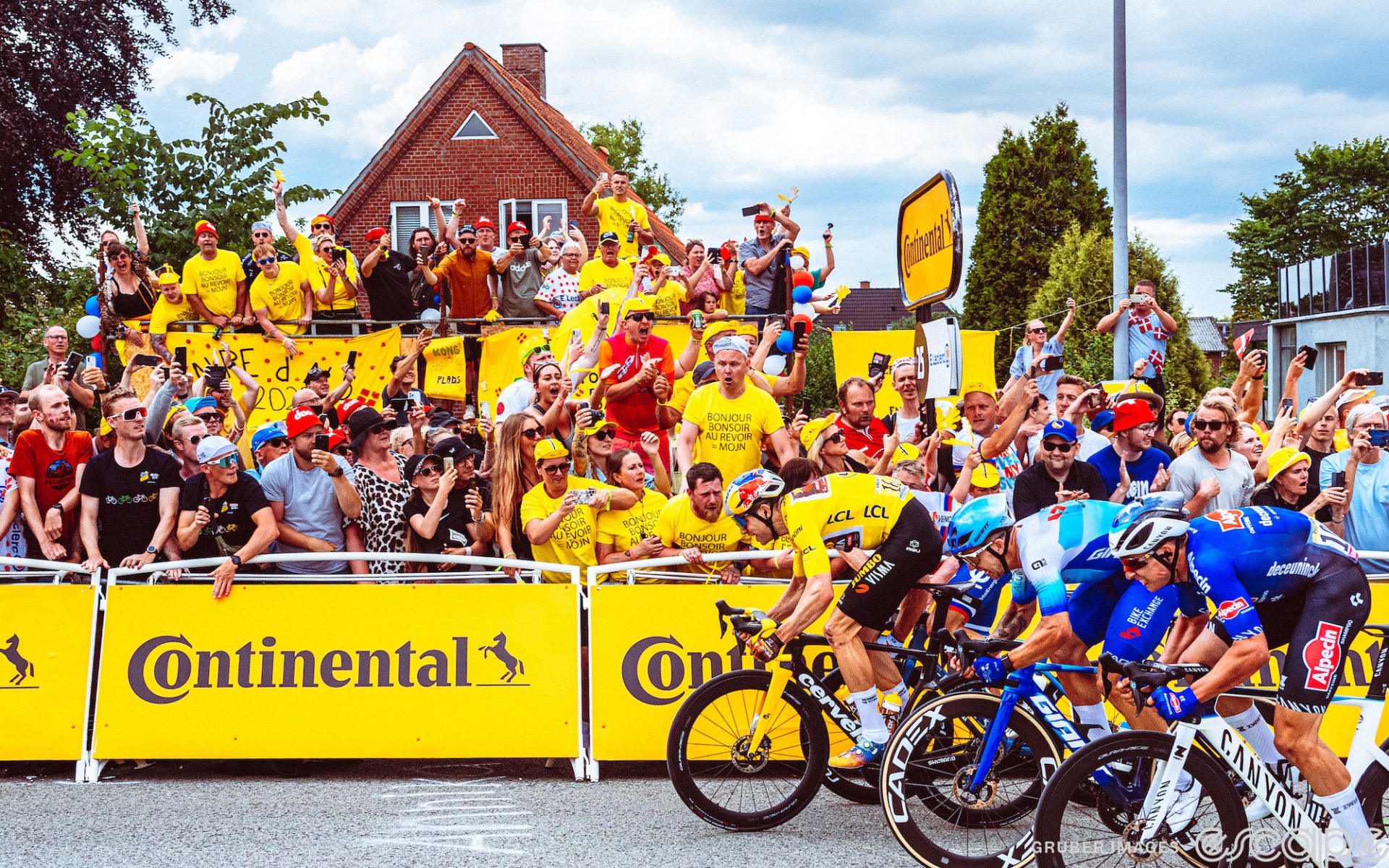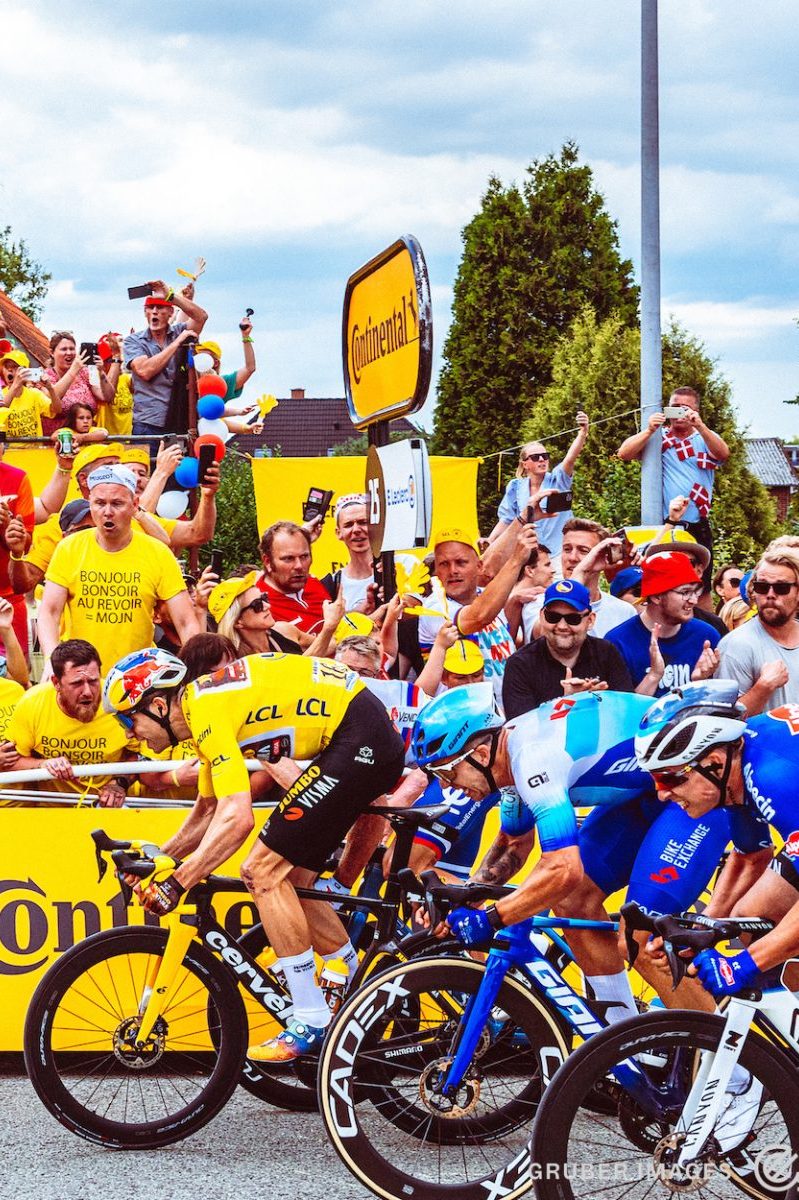In an exclusive report, Reuters claims that several top teams in the men’s WorldTour are exploring forming a new cycling league, soliciting outside investors with the assistance of “big four” accounting firm EY (formerly Ernst & Young).
The report names Ineos Grenadiers and Jumbo-Visma as two of the teams interested in the project, and says that EY is seeking expressions of interest from outside investors as soon as this week. One potential investor, says Reuters, is CVC Partners, the former owner of Formula 1.
Most of the supposed parties involved declined to comment to Reuters, but Jumbo general manager Richard Plugge did tell the outlet that bike racing is an underdeveloped sport that needs a better business model. He declined to directly address Jumbo’s involvement in the project.
If all this sounds very much like the league structure that EF Education-EasyPost manager Jonathan Vaughters proposed most recently in an opinion piece for Escape Collective, you’re not wrong. It’s also not entirely new.
“This idea has been circulating since at least 2004,” Vaughters told Escape, pointing to the initial ProTour reforms under then-UCI president Hein Verbruggen. He declined to say if EF is an active participant in the current effort, but added that “anything that creates a collaborative environment between races and teams, of course we’d want to be involved.” And while big changes in the sport likely aren’t imminent, more modest but still important ones are a possibility.
Besides the ProTour, league ideas have circulated in the sport for over a decade. In 2012, a number of teams banded together to create a new format called World Series Cycling. That initiative, backed by current Soudal Quick-Step owner Zdenek Bakala and a London-based sponsorship consultant, the Gifted Group, proposed a Formula 1-style remake of the pro calendar around a series of four-day races. Then-UCI president Pat McQuaid pledged to include some of the group’s proposals in the WorldTour, but the mooted overhaul itself never happened.
A similar project emerged a few years later, called Velon. Backed by 11 of the sport’s top teams, the group signed a 10-year agreement in 2016 with Infront, which covered a variety of initiatives from media rights to technology. Velon also organized the short-lived Hammer Series, a set of three-day races with a team-based scoring format that ran from 2017-2019. Velon still exists, but now mostly focuses on data analytics and assorted media for fans.
So what’s the big stumbling block to a league setup and why can the sport surmount it now?
There are two, in fact. First, the UCI has always opposed league structures, which would erode its unilateral authority as the governing body of the sport by sharing power with teams and races. Second, race promoters are also wary of league formats, simply because very few events actually make money. The big promoters that do make money dominate the sport, and revenue-sharing agreements threaten to take money away from them. For smaller races, any talk of calendar reform – invariably a topic of discussion for league formats – implies their event might be on the chopping block.
The first hurdle is surmountable, in theory, but only by solving the second and bringing the promoters into the initiative, in particular the trio of Flanders Classics, which organizes cobbled races like Omloop Het Nieuwsblad and the Tour of Flanders; RCS, promoter of the Giro d’Italia, Milan-San Remo, and the Giro di Lombardia, and ASO, which puts on the Tour de France, Vuelta a España, and Paris-Roubaix.
Where the new initiative may differ from WCS and Velon is in the scale and scope of its initial ambitions: less a formal league, perhaps, and more cooperative. “A lot of those hurdles, people think of as an absolute all-in or all-out thing,” said Vaughters. “But you can take the existing WorldTour structure and create a series inside that which doesn’t change promotion and relegation, doesn’t change crown jewel events, but gives smaller events more relevance.”
One option would be to start with a collective marketing and rights agreement between races and teams (Velon’s deal with Infront didn’t involve race promoters). Selling media rights to a single race or even a single promoter’s entire slate of races is a harder task than selling aggregated rights across a group of races from various promoters; aggregated rights would theoretically also be more valuable. On the cost side, there are redundancies to selling individual rights, as each promoter has to have its own media division. But the big question is what new revenue streams a league-style approach might unlock.
While a more modest cooperating agreement might have better prospects than the sweeping reform proposals of the past, Vaughters thinks any chances for success probably rely as much or more on a different change. “There’s been a maturation inside pro cycling,” he said. “If you look at who was running a team in 2006, it’s mostly ex-bike racers, people with cycling expertise and logistics and operations. Now, the teams have more people with commercial expertise, so the conversation is different.”
Will the results be different this time? Stay tuned.
What did you think of this story?


